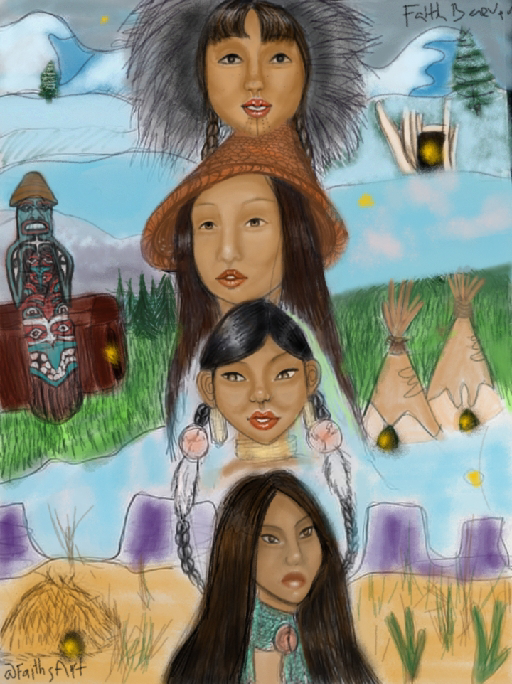Our relationship with the land is a huge part of our culture and identity as Native people. In her amazing book Braiding Sweetgrass, Robin Wall Kimmerer, a citizen of the Potawatomi Nation, describes how plants “shower us with food, literally giving themselves so that we can live.” To be good relatives it is our responsibility “to take only what is given, to use it well, to be grateful for the gift, and to reciprocate the gift.”
We are all connected with our surroundings in a relationship that goes back thousands of years – one where we take care of the land, and the land takes care of us.
Although this is true, our connection to the land has been disrupted by forces like colonization. Since 1776, the United States government has taken 1.5 billion acres of land from Native people. Today our reservations represent just a small part of our traditional territories. Whether it was through unfair treaties, the creation of the National Parks, or forced removals of peoples (like the Trail of Tears), nearly all of us have been separated from our traditional lands. This has caused much hurt.
Native people are resilient though! Even in the face of challenges, many of us continue to maintain our connection to the land. And there have been a lot of exciting examples of Tribes working towards getting land back. In the last few years alone, thousands of acres of land have been returned to the care of Indigenous people. Tribes are also finding ways to co-manage land with the government, like with the recent agreement at Bears Ears National Monument.
We might need to explore new and creative ways to stay connected to our land, but when we are able to do this our entire community benefits from being close to our traditional foods, plants, and the places our stories took place.
To learn how you can strengthen your connection to the land, read Healing the Land is Healing Us and learn more about the Land Back Movement.
To learn more:
- What Is the Land Back Movement? A Call for Native Sovereignty and Reclamation
- Reading of the book “Braiding Sweetgrass” by Robin Wall Kimmerer
- Land Back: Because Colonialism Does Not Spark Joy
- Healing the Land is Healing Us
Author: McKaleeSteen is a member of the Cherokee Nation in Oklahoma, andis currently a PhD candidate at UC Berkeley in the Environmental Science, Policy, and Management department. She is passionate about studying Indigenous land stewardship practices, providing resources for Indigenous youth, and the power of storytelling.


